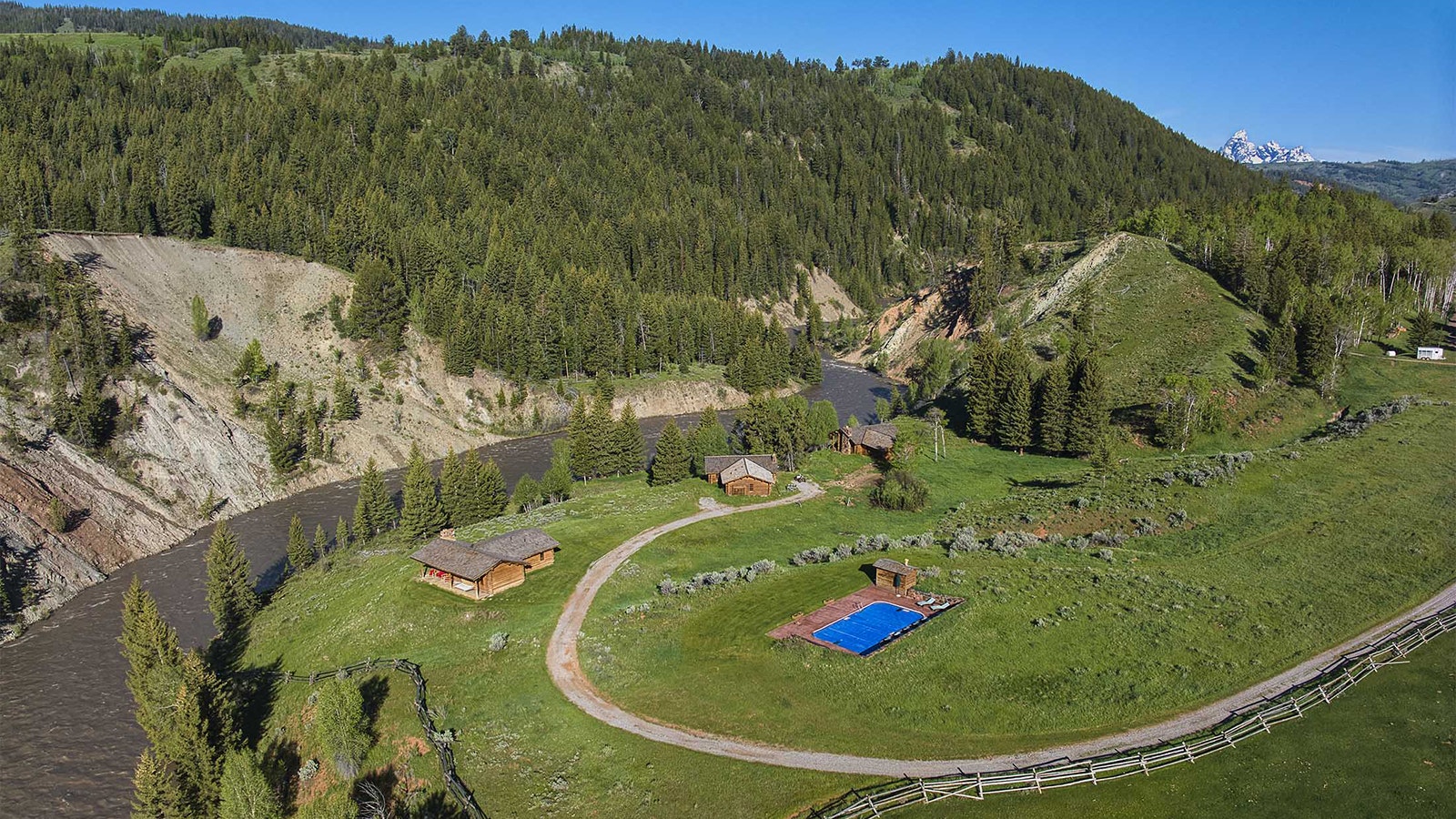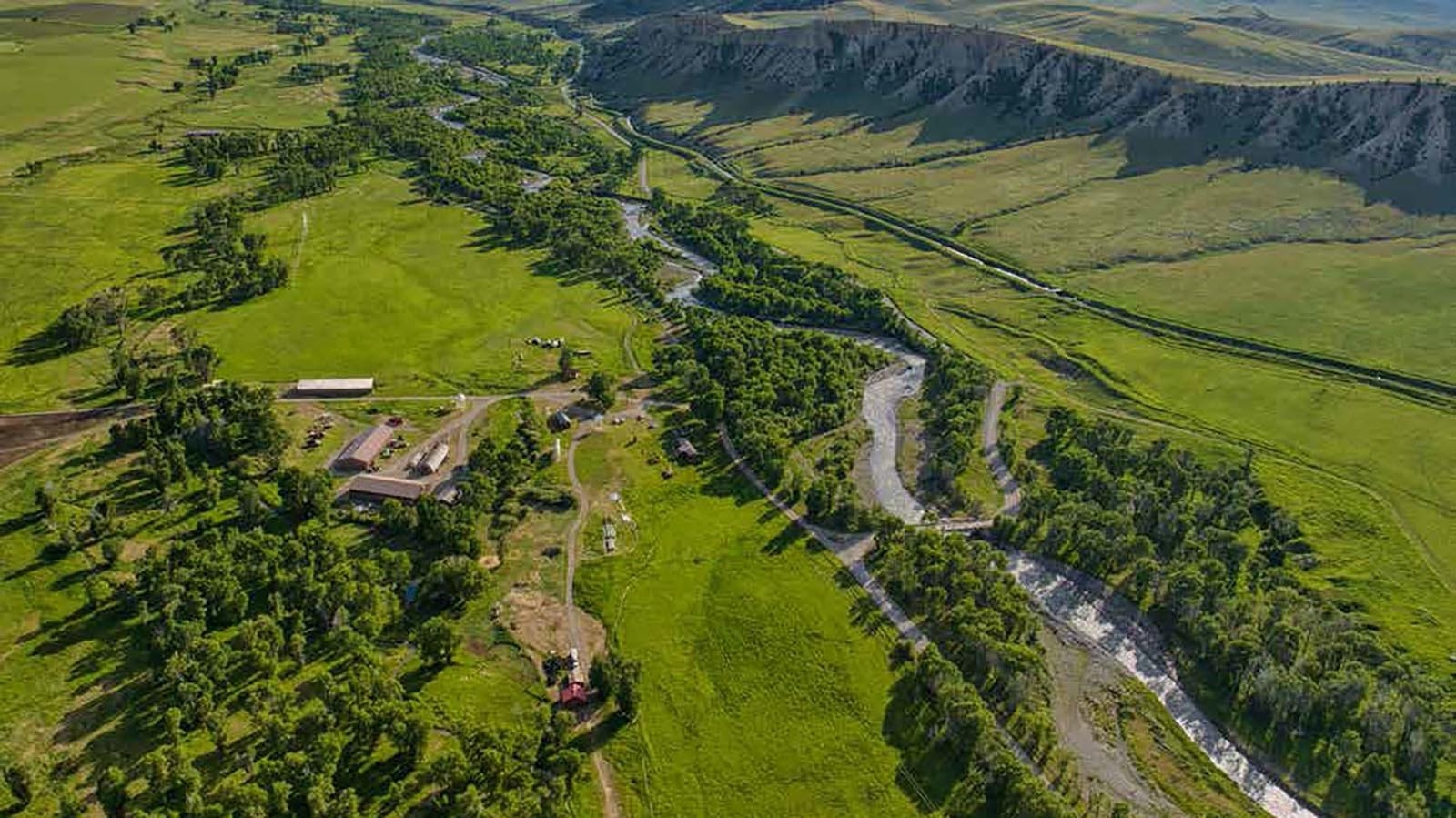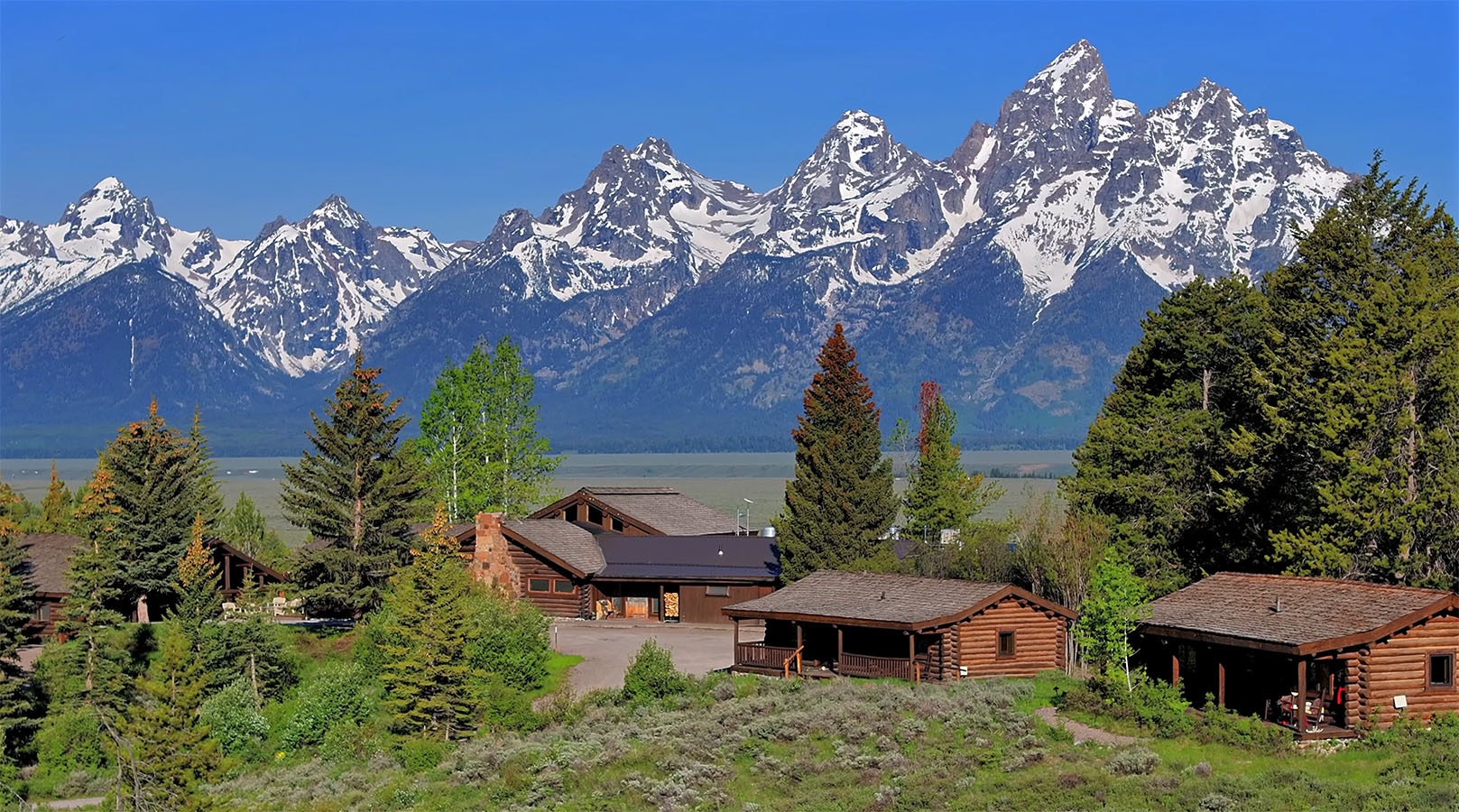When it comes to attracting wealthy landowners, Wyoming’s real estate market has always had an allure.
Vast, untamed landscapes, rich history and distant snow-capped mountains naturally attract attention — much like a well-cut diamond.
A favorable tax structure is also attracting investors interested in more than just a vacation retreat. For them, it’s about building generational wealth and legacies.
Wyoming, with no income taxes and powerful dynasty trusts that transfer wealth across generations while minimizing estate and gift taxes for up to 1,000 years, is becoming a favored tax haven for the wealthy.
Latham Jenkins, an associate broker with Live Water Properties, works with many of these buyers in the Jackson Hole area.
“Buyers are realizing Wyoming isn’t just a scenic escape,” he told Cowboy State Daily. “It’s a strategic one. With no income tax, no capital gains tax and the ability to create perpetual dynasty trusts, it’s one of the most powerful states for long-term wealth preservation.”
That’s not really new, Jenkins said.
“That’s been going on for a long time,” he said. “What we’re really seeing is a two-fold kind of driver in the market.”
First, there’s what Jenkins calls the “Yellowstone effect.” Millions of Americans have watched and adore Taylor Sheridan’s “Yellowstone” television series, which romanticizes cowboy culture and ranching life against a rugged landscape in the backdrop.
It’s been fueling all kinds of Western nostalgia, from cowboy hats and boots to albums like Beyonce’s “Cowboy Carter.” It’s the realization of Wyoming native Ian Munsick’s motto, “Bringing the West to the rest.”
“‘Yellowstone’ has expanded interest in the West,” Jenkins said. “It’s dramatized, of course, but we’re seeing real-world demand follow — especially from buyers looking for privacy, land and legacy.”
Montana has benefitted from that effect as well, Jenkins said. But Wyoming is beating the Big Sky State thanks to friendlier tax policies.
“Montana may get more headlines,” Jenkins said. “But Wyoming wins when you run the numbers. For serious buyers, the tax advantages here can amount to millions over time.”

Black Hills Bonanza
It’s not just Jackson Hole attracting that wealth.
Scott Williams, a land broker with Swan Land Co., is also working with a number of wealthy buyers looking at properties in locations like the Black Hills area in northeast Wyoming.
The buyers he’s working with often have a short list of states.
“One of my buyers said they were looking at Wyoming, South Dakota and Tennessee,” he told Cowboy State Daily.
All three of those states have no income tax. They also have dynasty trust laws, which allow wealth to transfer across generations, free of federal gift, estate and generation-skipping taxes.
South Dakota’s dynasty trust is perpetual, while Wyoming’s lasts 1,000 years. Tennessee’s lasts 360 years.
“The wealthy have sophisticated tax planners who work for them,” Williams said. “So that’s always part of the conversation is taxes and the overall tax picture. It’s not just income tax, but also property tax, and how does the overall tax picture look.”
Williams has helped a lot of Nebraska buyers find property in Wyoming, he added, because the property taxes there are high.
“A lot of families that live in Nebraska end up buying in Wyoming eventually to escape those property taxes,” he said. “They’ve had some relief in the last couple of years in Nebraska, but that’s definitely been a motivating factor for people to come to Wyoming.”
Zero income tax in Wyoming is another of the advantages Williams hears clients tout in their decisions to shop for a property in Wyoming.
“I’ve heard people talking about, ‘Hey, I’ve got to live here a certain amount of the year in order to avoid paying (income) taxes,’” Williams said. “And so that’s why they’re buying a house here, so they can escape that tax.”
Price Point
Williams and Jenkins both agreed that wealthy buyers who can outbid all others tend to put an upward pressure on prices. However, Williams feels that it can’t stray too far from what’s in surrounding states before it starts to exert an opposite effect.
“Ultimately, wealthy buyers have a palette of options,” he said. “They could go to Idaho, they could go to Montana, they can be in any state they want to be in. If prices go up so much that it offsets the amount of tax they save, it doesn’t really save them any money.
“So, I think it’s ultimately the ability to price these different markets that’s going to limit the amount that property is going to go up.”
The game changes for resort-type towns, Williams said.
“If you’re comparing Jackson Hole to Aspen, Colorado, then that could be a factor,” he said. “People, if they’re comparing luxury market to luxury market, Wyoming’s probably still going to win because of the favorable tax environment.”
Jenkins believes that kind of pressure would mostly affect first-time homebuyers outside of the Jackson Hole area.
“We’re seeing cash purchases at every level of the market now,” he said. “Historically, your more entry-level pricing was always financed on those homes. With cash buyers or investors entering the market in a segment that did not have that before, it does put further pressure on first-time home buyers trying to get in and compete with cash offers.”

Why Wyoming Is The Total Package
While South Dakota’s combination of no income tax and perpetual dynasty trusts is attractive, Wyoming still beats it when it comes to actually closing the deal, Jenkins said.
There are several factors involved in that.
For one, Wyoming’s property taxes, while they’ve been rapidly increasing, still remain lower than South Dakota’s. Wyoming also has advantageous laws to shelter wealth.
“Many of our clients are structuring purchases through Wyoming LLCs held in dynasty trusts,” Jenkins said. “They’re thinking not just about ownership, but about how to pass these properties on for generations.”
That kind of favorable tax environment is something Wyoming has been building for decades, Jenkins added, and that longevity is a selling point as well.
“A constitutional ban on income tax provides unmatched predictability, and Wyoming was the first to authorize LLCs in 1977,” he said. “By the early 2000s, it had already passed legislation supporting 1,000-year dynasty trusts, making it one of the most powerful jurisdictions for long-term wealth structuring.”

Not All About Money
Strong privacy and asset protection laws, as well as low administrative costs, add to a pleasing financial profile.
When that’s combined with the other things Wyoming offers, Jenkins feels it is unparalleled among Western states. But it’s not all about the bottom line for wealthy buyers.
“Wyoming isn’t just a tax strategy,” Jenkins said. “For a lot of buyers, Wyoming aligns with their values — privacy, stewardship, independence — and they want a structure that reflects that.”
The cowboy culture, the scenic landscapes and national parks, and amenities like ski resorts combined with all the tax advantages, is the total package for someone looking to build a legacy.
“Real estate in Wyoming offers something the other markets can’t: permanence. It’s land, lifestyle, and a hedge against volatility, all in one,” Jenkins said. “When fiscal policy feels unpredictable, buyers often seek places where their money — and their legacy — are protected. Wyoming offers both.”
Market uncertainty has been boosting the number of buyers he’s talking to lately, Jenkins added.
“We’re seeing more clients move out of reactive markets and into intentional purchases — ranch land, legacy estates, conservation properties,” he said. “These are not short-term plays. They’re generational.”
While there are more properties on the market, those additional buyers looking for a wealth haven in Jackson Hole are keeping it a buyer’s market for now.
Renée Jean can be reached at renee@cowboystatedaily.com.





